In 'Welcome to Wrexham' new season, Ryan Reynolds, Rob McElhenney talk triumph, joy and loss
If you had lingering doubts about Ryan Reynolds and Rob McElhenney’s sincerity as owners of Wrexham AFC, just watch how they reacted to the final whistle on April 22, 2023.
As the sound shot through the Racecourse Ground stadium, marking Wrexham’s promotion to the English Football League, thousands of fans exploded from their seats. A sea of red washed onto the pitch (that’s field in American parlance). Strangers hugged. Grown men wept.
In the owner’s box, Reynolds and McElhenney visibly exhaled. As fans raised their arms in exaltation, the Hollywood actors' crumpled under the emotion.
“I don't know that I've ever felt a sense of relief like that,” says Reynolds. “We're carrying with us the hopes and dreams of so many people … It felt like a dam breaking.”
It was “as if something left our bodies,” adds McElhenney.
That whistle marked an end and a beginning for Wrexham, and it’s the perfect plot point for Season 3 of “Welcome to Wrexham,” FX's docuseries that returns May 2 (Thursdays at 10 EDT/PDT, and streaming next day on Hulu).
Rob McElhenney believes 'football is a conduit into some of the greatest stories' ever told
In 2020, Reynolds (“Deadpool”) and McElhenney (“It's Always Sunny in Philadelphia”) bought Wrexham AFC. The Welsh team, founded in 1864, is the third-oldest professional soccer club in the world, but it had been exiled to the National League (the fifth tier of English football) for over a decade.
When the $2.5 million purchase was finalized in 2021, it looked like the actors had invested in a fixer upper, the sports equivalent of an HGTV renovation show.
It's apparent now that what they really got was a wealth of stories.
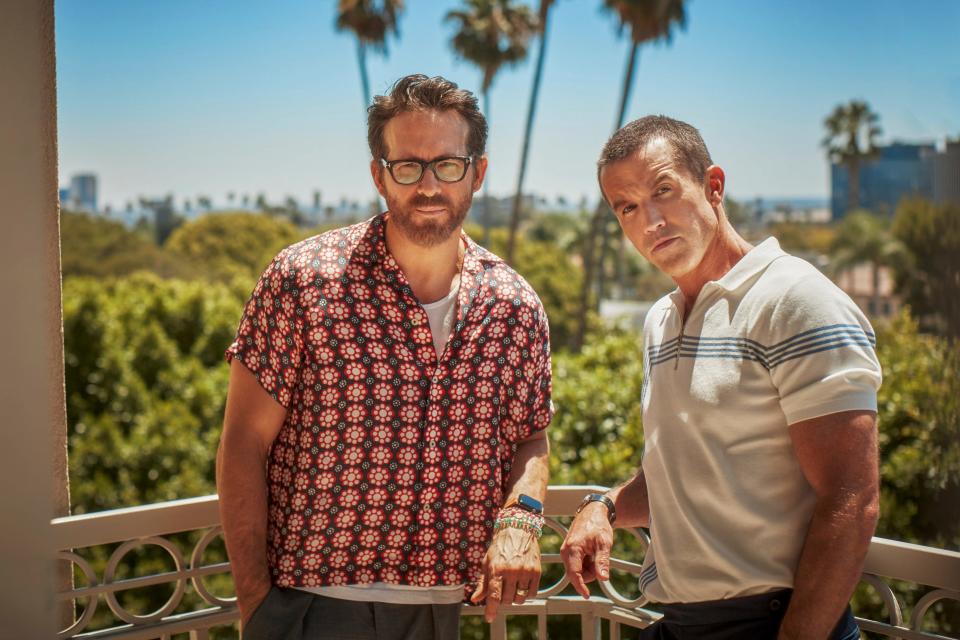
“Welcome to Wrexham” takes a much broader view than a typical sports docuseries, looking beyond the stadium. It’s why some people have called it a real-life “Ted Lasso.”
Yes, there are plenty of episodes about the team to satisfy that competitive itch. Viewers are on the sidelines for Wrexham’s euphoric 91st-minute win over rival Stockport in the FA Trophy semifinals. In the upcoming season, they’ll share in the outrage as star player Paul Mullin suffers a punctured lung after a collision in a preseason game. Time and again, they’re brought inside the locker room as Wrexham manager Phil Parkinson fires F-bombs, tallied on screen as “Phil’s enthusiasm.”
But entire episodes center on the working-class town of Wrexham and its fandom.
Viewers learn of its former glory as a coal mining center, and how the year 1934 embroidered on the nape of players’ shirts is an observance of the Gresford Colliery disaster that killed more than 260 men.
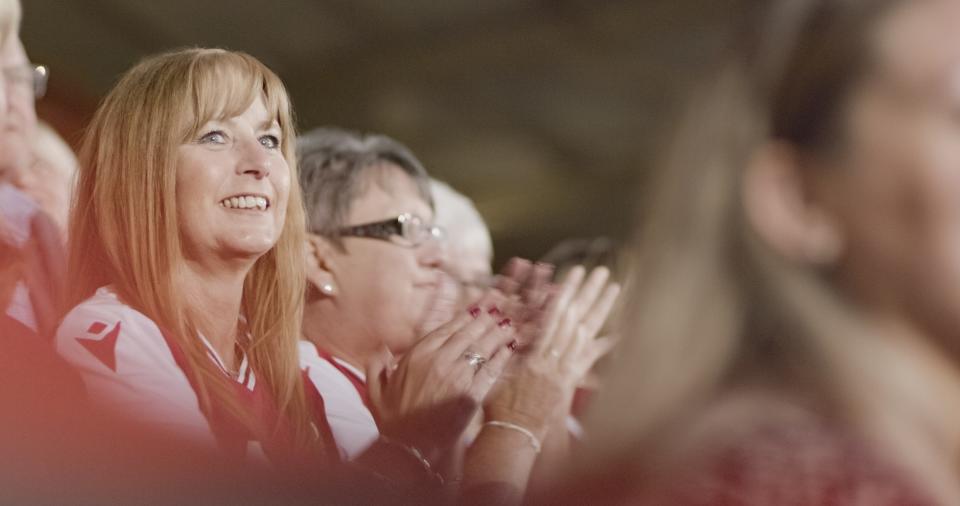
They meet third-generation fan Shaun Winter, a divorced dad on a sobriety journey who lives to take his sons to weekend matches. There’s Wayne Jones, The Turf pub owner who’s a reliable voice of hope, and Annette Gardner, a “happy clapper” who’s content to support the club, from which she found solace after her husband died.
Then there’s the celebrity element. Will Ferrell, Paul Rudd, McElhenny's "Sunny" co-star Glenn Howerton and Hugh Jackman all make appearances. So do Reynolds and McElhenney’s actress wives, Blake Lively and Kaitlin Olson. King Charles and the Queen Consort even make a stop at Racecourse Ground stadium.
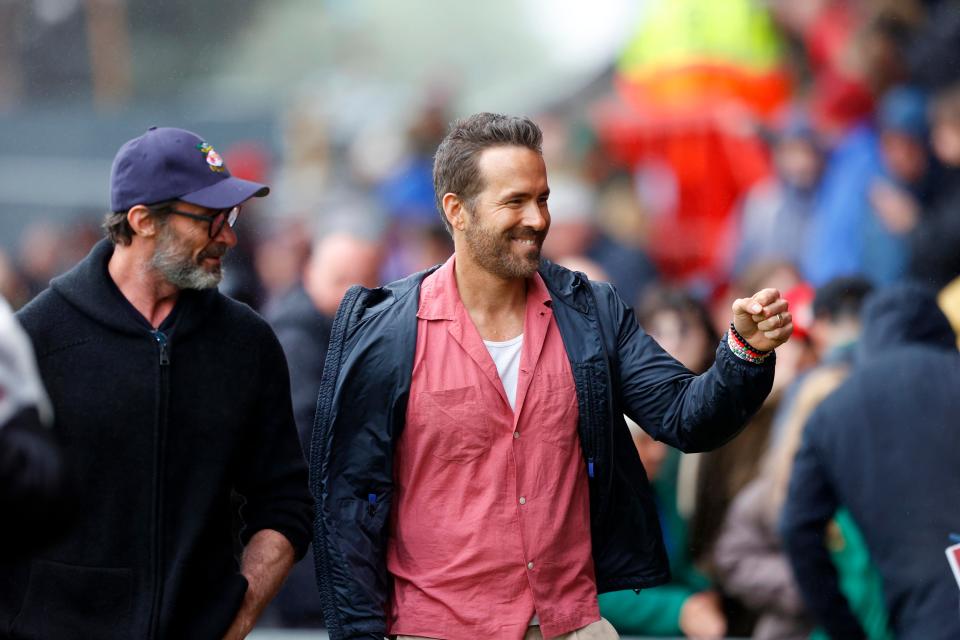
In an especially memorable Season 2 episode, Charlie Day is reduced to tears as Wrexham secures a crucial win against Yeovil. “Welcome to football, buddy,” McElhenney tells his other "Sunny” co-star.
“What I believe people care about are stories. They care about the best stories, the stories that get them invested,” says McElhenney, 47. “What we're trying to say is the game of football is a conduit into some of the greatest stories that you've ever been told, and that the games are just an extension of that … Your heart will be broken and you will fall in love and you will feel joy. You will feel triumph and you will feel loss.”
Ryan Reynolds is 'pushing as hard as humanly possible' for Wrexham 'to get as far as possible'
In Season 1, Wrexham lost, failing to secure a promotion after a breakout year.
In Season 2, the Red Dragons won. Fans of the team know how Season 3 ends, but we won’t spoil that for fans of the show here.
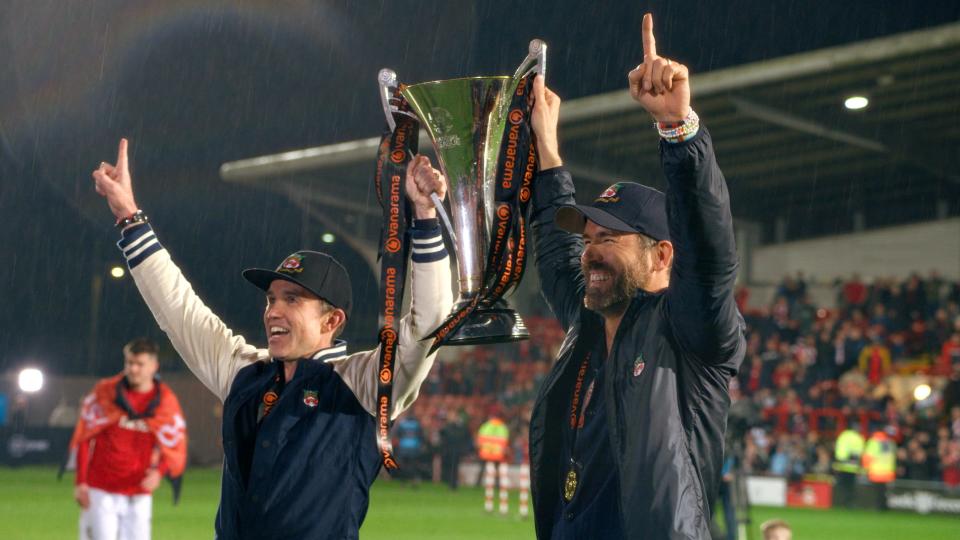
Throughout it all, Reynolds and McElhenney have faced criticism along with acclaim.
Some people take exception to Wrexham being portrayed as underdogs given their Hollywood owners' deep pockets. A New York Times Magazine story said their “roster is full of what are effectively ringers, being paid situationally outlandish amounts from what I can’t help imagining are the profits of the ‘Deadpool’ franchise.”
Indeed, in the season when Wrexham secured promotion, it had the four highest-paid players in the National League. And when the club released its accounts in March, it showed what was essentially an $11 million loss for Reynolds and McElhenney.
But consider Wrexham’s ultimate goal of the Premier League and the price tag that comes along with it and that figure becomes measly. In the top tier, many teams are valued in the billions. Even middling players make millions a year, with exceptional ones like Kevin De Bruyne of Manchester City earning an almost $26 million salary.
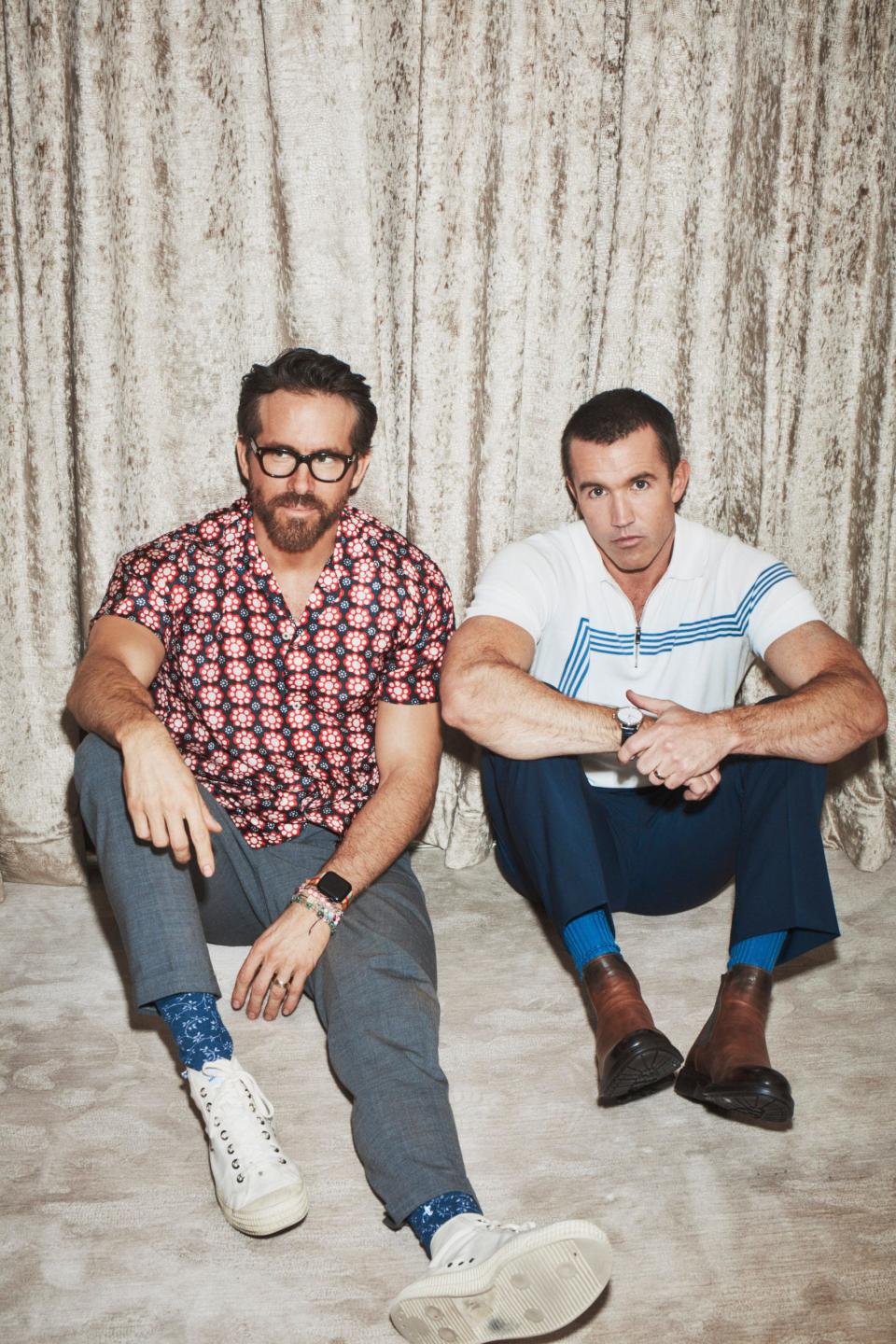
“All criticism when it comes to this stuff is fair game,” says Reynolds, 47. “There's no part of me that thinks we’re trying to shut that down. We are pushing as hard as humanly possible for this club to get as far as possible in this sport, in the least amount of time.”
“We will do whatever we have to within the confines of the rules to make that happen. That's literally our job,” adds McElhenney.
Another criticism is that the show's self-awareness is self-serving. The Ringer called it “cleverly packaged, binge-worthy propaganda capitalizing on the fastest-growing sport in the United States.” But the owners (and their Emmys) aren’t fazed. McElhenney says almost everything is on the table, with only the most private moments shielded from view.
“If I see something with me where I'm acting impetuous or I'm embarrassed, I'm like, ‘It's got to go in’ because it needs to feel real and organic. As much as my ego wants to take it out, I think the audience will smell that. And they will recognize that's false,” he says.
Ryan and Rob say 'We're not trying to be manipulative. We're trying to be honest.'
Whether you view the team, its famous owners and their relationship to the town as symbiotic or co-dependent, it’s undeniable that “Welcome to Wrexham” has hit a nerve.
The show has connected a postindustrial Welsh city to the world, uniting fans online and in real life and sparking an economic boon.
It’s changed the lives of fans and players, including those on Wrexham’s women's team who were promoted the same year as the men and are stars of some of the series’ most compelling episodes.
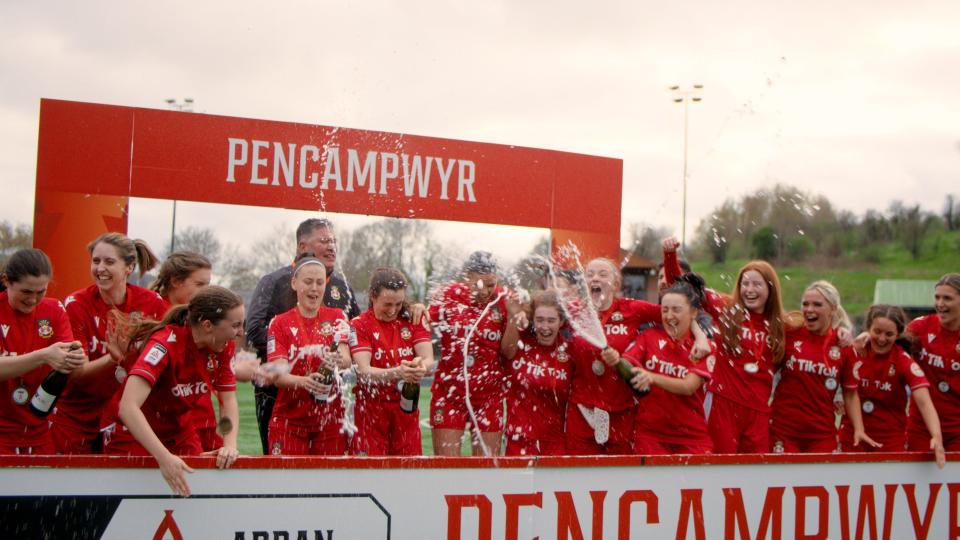
There are times when watching the show feels like therapy. Reynolds talks about sports being a singular connection with his emotionally distant father. McElhenney talks about feeling kinship with Wrexham star Ollie Palmer, as both have parents who came out as gay.
McElhenney openly shows affection to his son and hugs his dad and male friends during matches. “It's a way for men to bond," he says. "Even just having a conversation about things they love. Believe me, we're not trying to be manipulative. We're trying to be honest.”
Then, like a true storyteller, he adds: “But my goal is to make people cry. Men cry, women cry, anybody cry when they're watching because they feel so emotionally affected by it.”
Looking for reliable options to stream “Welcome to Wrexham” on Hulu? Check out USA TODAY Home Internet for broadband service plans in your area.
This article originally appeared on USA TODAY: ‘Welcome to Wrexham' Season 3: Ryan Reynolds talks team's triumph
